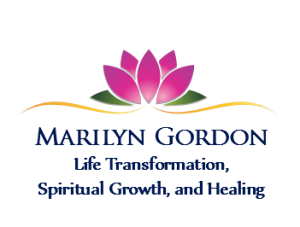In a world that often feels chaotic and overwhelming, the quest for peace and healing is more relevant than ever. Spiritual healing is a practice that offers a pathway to reconnect with our inner selves, providing tools to manage stress, anxiety, and emotional turmoil. This blog post delves into the essence of spiritual healing, its benefits, methods, and how one can embark on this transformative journey.
What is Spiritual Healing?
Spiritual healing refers to a broad range of practices that focus on healing the spirit and the mind. It recognizes that emotional and psychological issues can manifest physically and that true healing involves addressing these spiritual dimensions. Spiritual healing can take many forms, including meditation, prayer, energy healing, and holistic therapies. It emphasizes the interconnectedness of mind, body, and spirit, suggesting that true wellness comes from a harmonious balance among these aspects.
The Importance of Spiritual Healing
- Promotes Inner Peace: In today’s fast-paced life, finding a moment of stillness can be challenging. Spiritual healing encourages individuals to pause, reflect, and connect with their inner selves. This process cultivates a sense of peace that can combat the stresses of daily life.
- Enhances Emotional Well-being: Many people carry emotional baggage from past experiences, which can hinder personal growth. Spiritual healing helps individuals confront and release these emotions, leading to improved mental health.
- Strengthens Relationships: By fostering a deeper understanding of oneself, spiritual healing can improve how individuals relate to others. It encourages empathy, compassion, and forgiveness, which are essential for healthy relationships.
- Supports Physical Healing: Numerous studies have shown that a positive mindset and emotional well-being can significantly impact physical health. Spiritual healing can aid recovery from illness by reducing stress and promoting a more balanced lifestyle.
- Fosters Personal Growth: Engaging in spiritual practices can lead to profound insights and self-awareness. This journey often inspires individuals to pursue their passions, leading to a more fulfilling life.
Common Spiritual Healing Practices
- Meditation: Meditation is a cornerstone of many spiritual healing practices. It involves focusing the mind and eliminating distractions to achieve a state of deep relaxation and heightened awareness. Regular meditation can help reduce anxiety, improve concentration, and promote emotional stability.
- Energy Healing: Practices like Reiki, chakra balancing, and crystal healing fall under the umbrella of energy healing. These methods focus on manipulating the body’s energy fields to promote healing. Energy healers often use their hands to channel healing energy, helping to remove blockages and restore balance.
- Mindfulness: Mindfulness is the practice of being fully present in the moment, allowing individuals to observe their thoughts and feelings without judgment. This practice can help reduce stress and anxiety, fostering a greater sense of peace.
- Yoga: Combining physical movement, breath control, and meditation, yoga is a holistic practice that nurtures the mind, body, and spirit. Different styles of yoga can address various needs, from relaxation to physical strength and flexibility.
- Nature Therapy: Spending time in nature can be incredibly healing. Nature therapy encourages individuals to connect with the natural world, which can ground and rejuvenate the spirit.
- Spiritual Counseling: Working with a spiritual counselor or healer can provide guidance and support on one’s healing journey. These professionals can help individuals navigate their spiritual paths and offer insights into overcoming personal challenges.

How to Start Your Spiritual Healing Journey
- Set Intentions: Before beginning your spiritual healing journey, it’s essential to set clear intentions. What do you hope to achieve? Whether it’s finding inner peace, releasing emotional pain, or improving physical health, having a clear goal can guide your practice.
- Choose a Practice That Resonates: Explore various spiritual healing practices and find one that resonates with you. Whether it’s meditation, yoga, or energy healing, choose a practice that feels authentic and fulfilling.
- Create a Sacred Space: Designate a space in your home for spiritual practices. This area should be comfortable and free from distractions. Personalize it with items that inspire you, such as candles, crystals, or meaningful symbols.
- Establish a Routine: Consistency is key in spiritual healing. Establish a routine that incorporates your chosen practices. This could include daily meditation, weekly yoga classes, or regular energy healing sessions.
- Seek Support: Consider joining a community or group focused on spiritual healing. Sharing experiences with others can provide encouragement and deepen your understanding of the journey.
- Be Patient and Compassionate: Spiritual healing is a lifelong journey, and progress may not always be linear. Be patient with yourself and practice self-compassion as you navigate the ups and downs of this transformative process.
The Role of Faith in Spiritual Healing
For many, faith plays a significant role in spiritual healing. Whether it’s faith in a higher power, the universe, or the healing process itself, belief can be a powerful catalyst for change. Faith can provide comfort during difficult times, fostering hope and resilience. It encourages individuals to surrender control and trust in the healing journey, promoting a sense of peace.
Conclusion
Spiritual healing offers a profound and transformative journey toward self-discovery, emotional balance, and inner peace. By engaging in practices that nurture the mind, body, and spirit, individuals can experience a deeper connection with themselves and the world around them. While the journey may come with challenges, the rewards—enhanced well-being, improved relationships, and a greater sense of purpose—are well worth the effort.
Embarking on this path requires commitment, curiosity, and an open heart. As you explore the various practices and philosophies, remember that spiritual healing is a personal journey. Each individual’s experience will be unique, shaped by their beliefs, experiences, and aspirations. Embrace the journey with an open mind and a willingness to learn, and you may find that spiritual healing not only transforms your life but also allows you to radiate that healing energy to others, creating a ripple effect of love and positivity in the world.


